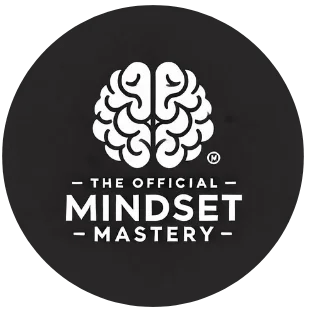Time management is a crucial skill in today’s fast-paced world. Mastering effective techniques can significantly boost your productivity and help you achieve your goals. According to a study by the American Psychological Association, individuals who practice good time management report 20% lower stress levels and 40% higher job satisfaction. Let’s explore some powerful strategies to enhance your productivity through better time management.
Understanding time management and its benefits
Time management is the art of organizing and planning how to allocate your time between various activities. It’s about working smarter, not harder. When you master this skill, you’ll experience numerous benefits:
- Increased productivity and accomplishment
- Better work-life balance
- Reduced stress and burnout
- Breaking bad habits like procrastination
- Greater sense of control over your time
Effective time management allows you to focus on high-impact tasks and achieve more in less time. It’s not just about being busy; it’s about being productive. By implementing the right strategies, you can transform your workday and unlock your potential for success.
Thomas Harper, a renowned productivity expert, often emphasizes the importance of connecting daily work to larger goals. This approach helps maintain focus and motivation, even when tackling mundane tasks. By aligning your daily activities with your long-term objectives, you create a powerful framework for success.
Key time management techniques for enhanced productivity
Several proven techniques can help you manage your time more effectively. Here are some of the most popular and efficient methods:
- Timeboxing: Set specific time limits for tasks to increase focus and urgency.
- Time blocking: Schedule blocks of time for specific types of work or activities.
- Pomodoro Technique: Work in focused 25-minute sessions followed by short breaks.
- Eat the Frog: Tackle your most challenging or important task first thing in the morning.
- Pareto Principle (80/20 rule): Focus on the 20% of tasks that produce 80% of results.
- Getting Things Done (GTD): Capture all tasks and organize them systematically.
These techniques are not mutually exclusive. You can combine them or adapt them to suit your personal work style and preferences. The key is to experiment and find what works best for you.
Practical tips for implementing effective time management
To truly enhance your productivity, it’s essential to incorporate these time management techniques into your daily routine. Here are some practical tips to help you get started:
- Plan your day in advance: Take a few minutes at the end of each workday to plan for tomorrow.
- Prioritize tasks: Use methods like the Eisenhower Matrix to categorize tasks based on urgency and importance.
- Learn to say “no”: Don’t overcommit. Politely decline tasks that don’t align with your priorities.
- Minimize distractions: Turn off notifications during focused work periods.
- Take regular breaks: Short breaks can help you recharge and maintain productivity throughout the day.
- Use digital tools: Leverage productivity apps and software for better task management.
Remember, the goal is to ignite motivation for personal growth and success. By consistently applying these tips, you’ll develop habits that support effective time management and enhanced productivity.
Overcoming common time management challenges
Even with the best intentions, you may encounter obstacles in your time management journey. Here are some common challenges and strategies to overcome them:
| Challenge | Solution |
|---|---|
| Constant interruptions | Set boundaries, use “do not disturb” modes, and communicate your availability clearly |
| Unclear priorities | Regularly review and update your goals, use prioritization techniques |
| Procrastination | Break tasks into smaller, manageable steps, use the “2-minute rule” for quick tasks |
| Difficulty saying no | Practice assertiveness, focus on your priorities, offer alternatives when possible |
| Burnout from overwork | Schedule regular breaks, practice self-care, and maintain a healthy work-life balance |
By addressing these challenges head-on, you can overcome limiting beliefs about your ability to manage time effectively. Remember, time management is a skill that improves with practice and persistence.
Maximizing productivity through continuous improvement
Effective time management is an ongoing process of refinement and adaptation. To truly maximize your productivity, consider these advanced strategies:
- Regular time audits: Periodically analyze how you spend your time to identify areas for improvement.
- Batch similar tasks: Group related activities to reduce context switching and increase efficiency.
- Delegate effectively: Identify tasks that can be delegated to others, freeing up your time for high-value work.
- Continuous learning: Stay updated on new productivity techniques and tools to refine your approach.
- Mindfulness practices: Incorporate meditation or mindfulness exercises to improve focus and reduce stress.
In 1918, Charles M. Schwab, then one of the richest men in the world, hired productivity consultant Ivy Lee to improve his company’s efficiency. Lee’s simple method of prioritizing tasks the night before and focusing on the most important item first led to significant improvements in productivity. This historical anecdote illustrates the timeless value of effective time management techniques.
By consistently applying these strategies and remaining open to new approaches, you can continuously enhance your productivity and achieve your goals more efficiently. Remember, the journey to mastering time management is ongoing, but the rewards are well worth the effort.





